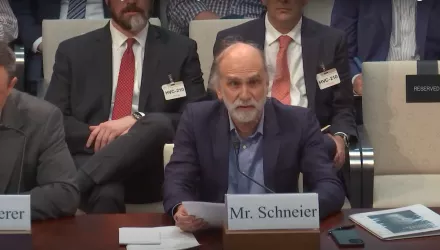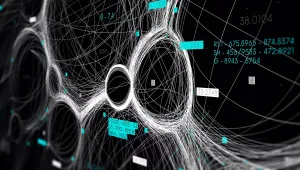Priscilla Moriuchi is a non-resident Fellow at Harvard Kennedy School’s Belfer Center for Science and International Affairs and works in Security Engineering and Architecture at Apple. Ms. Moriuchi is an expert on state-sponsored cyber operations and Asia Pacific regional and cyber threats, and is a widely published researcher and commentator on national and cyber security issues. Her cutting-edge research on China, Russia, and North Korea has been featured in The New York Times, The Washington Post, The Wall Street Journal, and many others. Ms. Moriuchi was formerly the Head of Nation-state Research and the Principal Researcher at Recorded Future. Prior to joining the private sector, Ms. Moriuchi spent 12 years at the National Security Agency, most recently as the Enduring Threat Manager and top subject matter expert on East Asia and Pacific (EAP) cyber threats.
Alex O’Neill is an Associate of the Korea Project and a MSc candidate in the Russian and East European Studies program at the University of Oxford. Previously, Alex served as Coordinator of the Korea Project, where he helped oversee all research initiatives and events, including the 2nd Harvard Korean Security Summit. Alex also co-leads the Korea Project's North Korea Cyber Working Group and heads a research initiative on the cyber relationship between Russia and North Korea. He earlier served as research assistant to Professor Matthew Bunn at the Belfer Center’s Project on Managing the Atom. He is fluent in English and Spanish and has advanced proficiency in Russian. Alex graduated cum laude from Yale College with a degree in European History.
Dr. John Park is Director of the Korea Project at the Harvard Kennedy School’s Belfer Center. Dr. Park’s core research projects focus on nuclear proliferation, alliances, economic statecraft, North Korean cyber activities, and the political economy of the Korean Peninsula. At Harvard University, he is an Associated Faculty Member of the Korea Institute, Faculty Member of the Committee on Regional Studies East Asia, and a Faculty Affiliate with the Project on Managing the Atom. He previously directed Northeast Asia Track 1.5 projects at the U.S. Institute of Peace. He advises Northeast Asia policy-focused officials in the U.S. government. He earlier worked at Goldman Sachs and The Boston Consulting Group. Dr. Park received his Ph.D. from the University of Cambridge. He completed his predoctoral and postdoctoral training at the Harvard Kennedy School.
Lauren Zabierek is the Executive Director of the Cyber Project at Harvard Kennedy School’s Belfer Center. She comes to this role as a 2019 graduate of the Kennedy School's mid-career MPA program. Lauren served as an intelligence officer in the United States Air Force at the beginning of her career. Later, as a civilian intelligence analyst with the National Geospatial Intelligence Agency (NGA) assigned to the Office of Counterterrorism, she completed three war zone deployments. Throughout her six years at NGA, she became a subject matter expert on Activity Based Intelligence (ABI) and served as an adjunct professor in ABI at the NGA college. After leaving NGA, she joined the cybersecurity threat intelligence startup Recorded Future, and was instrumental in building its Public Sector business practice. In her role as a Senior Intelligence Analyst, she fused intelligence methodologies with cybersecurity and machine learning technologies to help public and private sector customers improve their cyber posture. She also managed a team of analysts and worked alongside the Product Management and Training teams to improve her customers’ experience with the software. A Gold Star Sister, Lauren is committed to supporting families of the fallen and has volunteered several times as a mentor with the Tragedy Assistance Program for Survivors (TAPS). She also co-founded the Recorded Future Women’s Mentorship Initiative, helped to start a women's initiative at NGA, is a member of the NatSecGirlSquad, and is the co-founder of the online social media movement called #ShareTheMicInCyber, which aims to dismantle racism in cybersecurity and privacy. She is also a Visiting Fellow at George Mason University’s National Security Institute.


